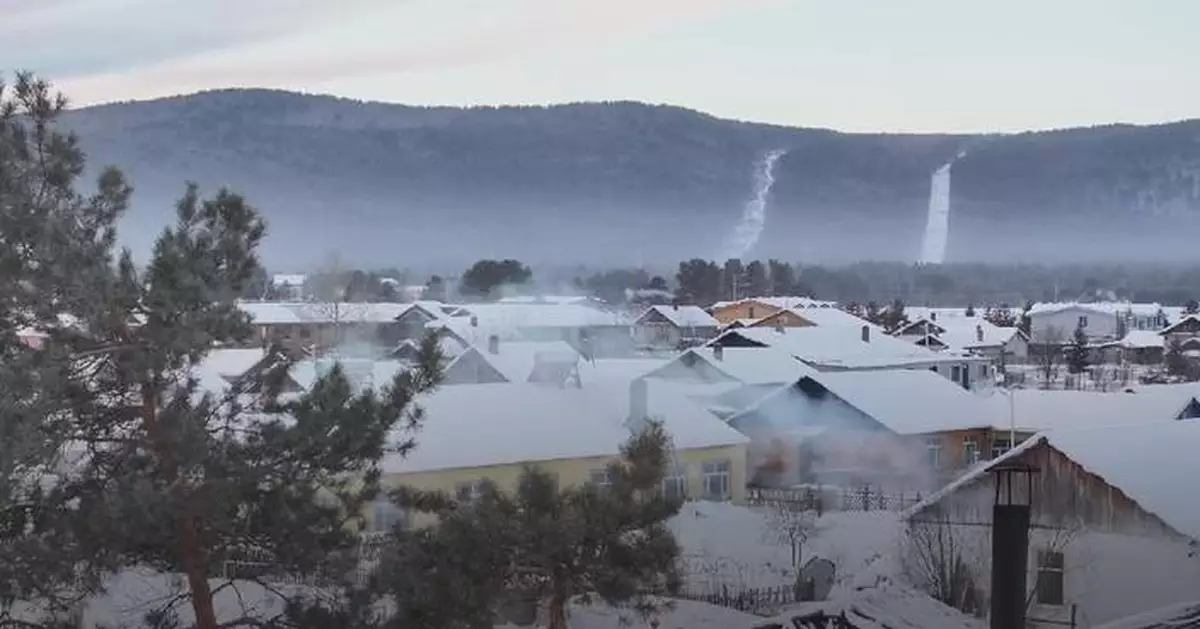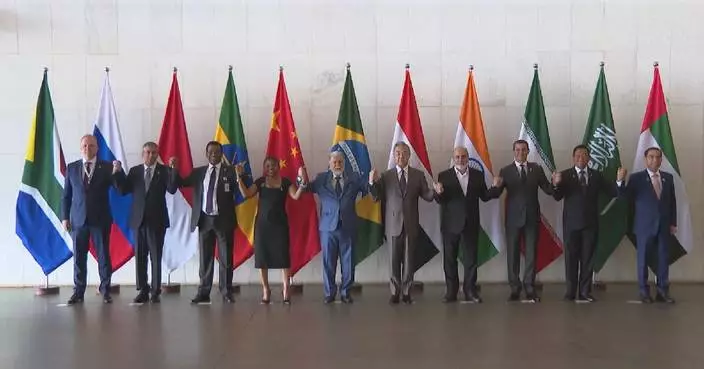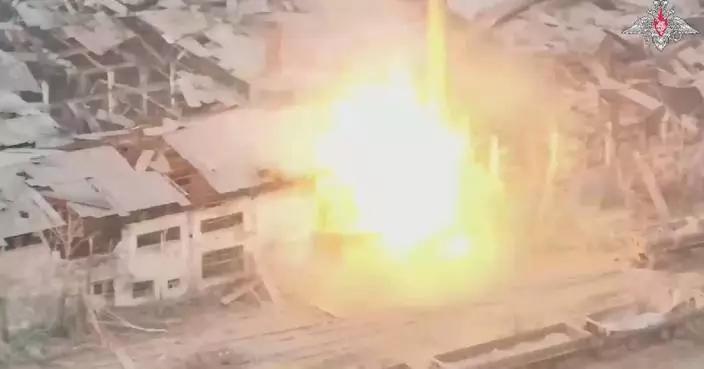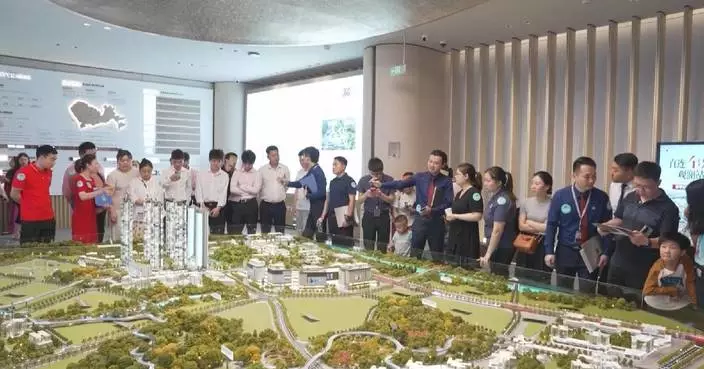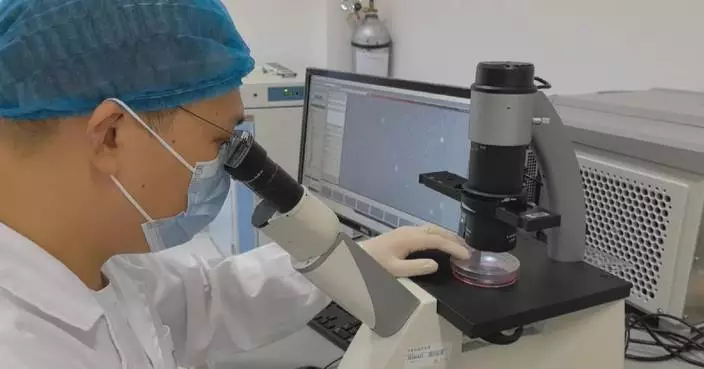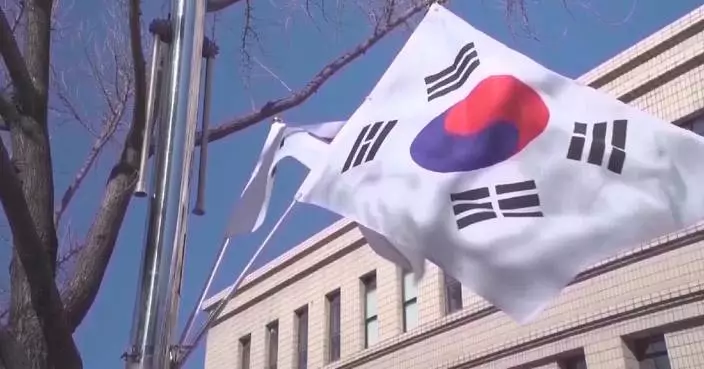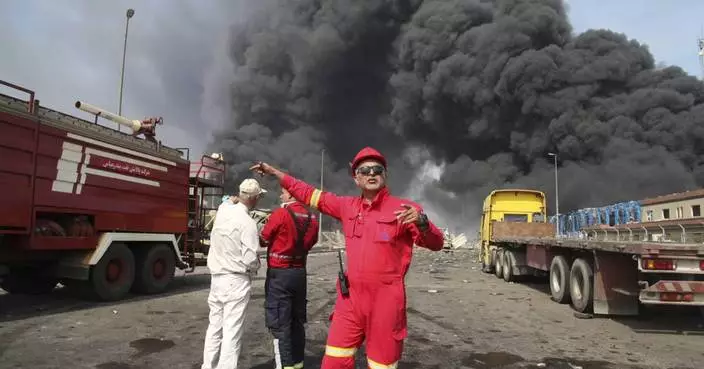Once known only for its bone-chilling temperatures, Beiji Village, located at the northernmost tip of China, has transformed into a thriving tourist destination.
The village in Mohe City, in northeast China's Heilongjiang Province, holds the record for China's lowest ever recorded temperature at minus 52 degrees Celsius, with its winter lasting up to seven months.
"During the winter, there's nothing to do, so there's no income. So, everyone here hates the winter. We used to think that when we grow up, we'd move to a warmer place, instead of staying here in this land of ice and snow," said Shi Ruijuan, a villager.
While Shi Ruijuan and other villagers have long endured the cold, young people moved away, pursuing opportunities that this isolated community simply could not offer.
But one day she noticed something strange - that people were coming to the village willingly just to enjoy the cold.
"I was like, why would anyone come to this frozen, icy place? There were people rolling around in the snow here. Like, why?" she questioned.
The conditions Shi grew up despising were actually an attraction for outsiders. But she realized the village was missing something.
"They asked me, 'Where can we stay?' and I was completely at a loss for words. I had no idea what to say or recommend," she said.
It was at this very moment that she recognized opportunities to generate income during the winter. She transformed three of her home's spare bedrooms into what would become the village's very first homestay.
Her entrepreneurial spirit aligns with President Xi Jinping's vision in 2016. "Lucid waters and lush mountains are invaluable assets, and I believe Heilongjiang's ice and snow are also gold mines," Xi said.
For the people of northeastern China, the vision has ignited a long-held aspiration. Efforts to develop winter tourist experiences in the region have taken center stage and a growing number of villagers have started tourism-related businesses.
Amid the hustle and bustle of hosting travelers from across the country, Shi one day welcomed a rather 'special guest.' In September 2023, Xi made his trip to Beiji Village and visited her homestay.
"We were sitting together in this room, chatting. I told President Xi at the time that my biggest wish was to open another guesthouse. When President Xi heard that, he said, 'Oh, so you're planning to start a chain!' I thought to myself 'I should really work toward that bigger goal!'" she said.
"Following our established goals, we will continue to move forward, alongside all the people of China, toward Chinese-style modernization," Xi told the villagers.
Amid the crowd was Guo Haotian, a villager who had also once planned to escape the local harsh weather but changed his mind after graduating from college.
"I happened to be there on a family visit. I had thought about opening a homestay back home, but I wasn't very determined. When I heard President Xi's words that Beiji Village's future development was promising, I felt that I could go for it," he said.
This growing enthusiasm has enabled Shi's dream to become reality a lot sooner than she expected. She recently opened a new homestay named 'Lush Water Lodge.'
And her ambitions don't stop here.
"Now I have the Lush Water Lodge, right? My next one will be called 'Lush Mountain.' Because 'Lucid waters and lush mountains, as well as ice and snow, are treasures of gold mines," she said.
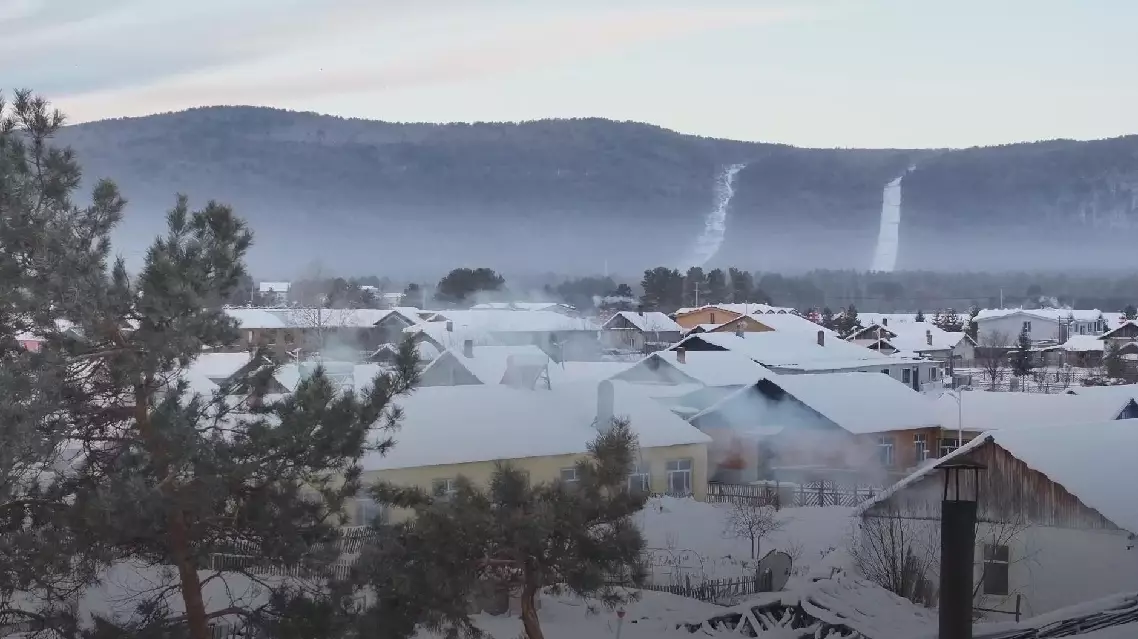
China's coldest village becomes hottest tourist destination
A deal to give the United States exclusive access to Ukraine's mineral resources has sparked contention among Ukrainian experts, who have described earlier drafts of the agreement as "unacceptable" and "colonial."
As the war between Ukraine and Russia is showing signs of winding down, another battle is quietly unfolding beneath Ukrainian soil, with competitors eying Ukraine's vast reserves of critical minerals.
The United States and Ukraine have signed an agreement to establish the U.S.-Ukraine Reconstruction Investment Fund, the U.S. Treasury Department announced on Wednesday.
For some, the minerals deal with the United States offers a lifeline for Kiev's war-torn economy. For others, it signals the quiet start of a resource takeover, raising concerns about what Ukraine may be giving away in exchange for support.
Ukraine is rich in critical resources such as graphite, lithium, and titanium. All these are vital to electric vehicles, the aerospace industry, and the high-tech supply chain.
At a graphite quarry roughly 400 km south from Kiev, capital of Ukraine, the roads give way to deep ruts and scattered debris, which means the mine site falls short of normal operation in wartime.
According to Ukraine's geological survey, the country holds 22 of the 50 strategic materials identified by the U.S. as critical.
As the global race for these resources intensifies, Washington is eager to secure reliable access. Ukraine, desperate for investment for reconstruction, has opened its doors. However, according to experts, the negotiations have been tense.
"When we had the first draft of this agreement, it was absolutely awful, absolutely unacceptable for Ukraine. It was also like a colonial agreement," said Volodymyr Landa, senior economist at the Center of Economic Strategy of Ukraine.
The country's mining sector is in dire need of foreign capital. At one of Ukraine's largest graphite deposits, infrastructure is minimal, with a few dogs, a guard, and an elderly tractor driver.
A Lviv-based mine owner said water pipes freeze over in winter, bringing operations to a halt. More importantly, the war has drained both labor and funding.
"If the Ukrainian government presents it for free, for 50 years with free rent, our resources will lose from that," said Ostap Kostiuk, CEO of Zavallivskyi Graphite, located in the Kirovohrad region.
Following a tense and reportedly humiliating visit to Washington in March, Ukrainian President Volodymyr Zelensky appears to have softened his stance on a minerals deal he once said he would never sign. The move has triggered public outcry at home.
"Now they (the U.S.) say 'give me money, no, lithium' for the guarantees. It's not fair, I think," said a local resident.
"I definitely started to respect America less. He (Trump) is not interested in Ukraine actually ending the war," another added.
This graphite deposit represents only a fraction of Ukraine's untapped potential. An estimated 30 percent of its critical minerals have already been extracted. The other 70 percent, still buried across vast swathes of the country, is what many believe Washington is ultimately eying.
"Please do everything to make this peace closer to us, closer to people, closer to Ukrainians. Because every day, every hour, every minute, it costs our Ukrainian nation one to five Ukrainian best guys' lives," said Kostiuk.
In the view of Professor Valeriy Pekar, a business scholar in Kyiv and Lviv, the Trump administration is not actually interested in securing peace for Ukraine.
"To take control of our resources, it is necessary to end the war. The American leadership declares themselves great peacemakers, but what they really do is not peacemaking. It's war mongering," he said.
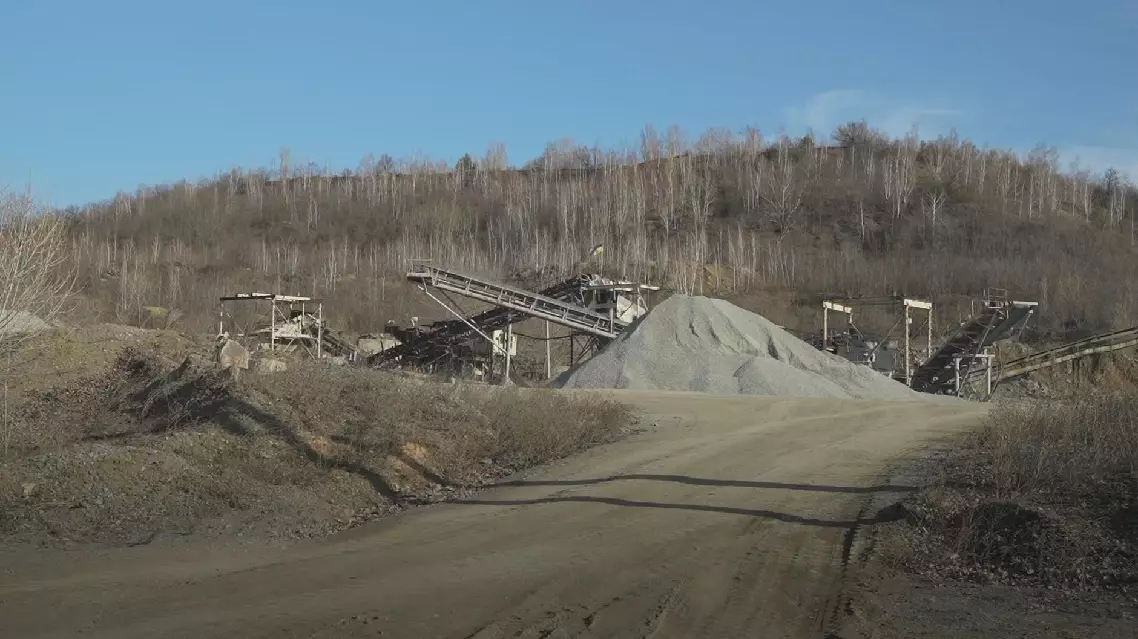
US interest in Ukraine's critical minerals draws public backlash



